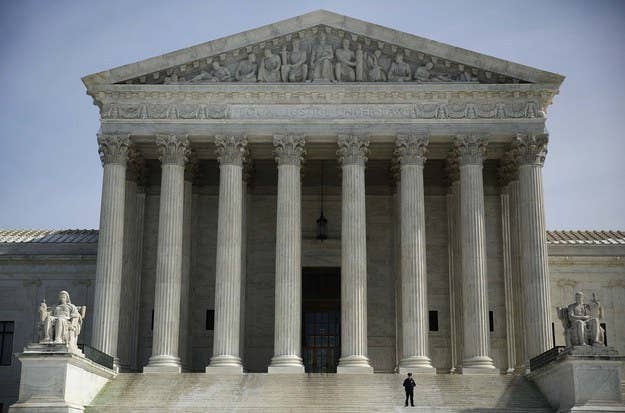
WASHINGTON — The Supreme Court, in a sharply divided opinion, upheld a New York town's practice of opening its monthly town meetings with a prayer.
Justice Anthony Kennedy, writing for himself and the four more conservative justices, concluded, "The town of Greece does not violate the First Amendment by opening its meetings with prayer that comports with our tradition and does not coerce participation by nonadherents."
The court previously had upheld the practice of the Nebraska legislature to open its sessions "with a prayer delivered by a chaplain paid from state funds," but the question before the court with the town of Greece's practice was similarly protected, despite taking place at meetings where individual town citizens sought action from the town. The question was whether the practice is permitted where the prayers are "sectarian in nature" — one of the prayers in the town referenced the "death, resurrection, and ascension of the Savior Jesus Christ," for example — and whether the prayers exerted impermissible "coercive pressures" on nonbelievers.
Kennedy concluded, though, that "[a]n insistence on nonsectarian or ecumenical prayer as a single, fixed standard is not consistent with the tradition of legislative prayer outlined in the Court's cases."
He added, however, that the decision on this point does not mean that sectarian prayer could never violate the Constitution, specifically noting, "If the course and practice over time shows that the invocations denigrate nonbelievers or religious minorities, threaten damnation, or preach conversion, ... [t]hat circumstance would present a different case than the one presently before the Court."
The five justices in the majority also held that — in the case of Kennedy and Chief Justice John Roberts and Justice Samuel Alito — the purpose and effect of the prayer was not coercive or — in the case of Justice Clarence Thomas, writing for himself and Justice Antonin Scalia — the subtle pressures at play here do not amount to legal coercion.
Justice Elena Kagan, explaining her dissent on behalf of herself and the other three more liberal justices, countered that "month in and month out for over a decade, prayers steeped in only one faith, addressed toward members of the public, commenced meetings to discuss local affairs and distribute government benefits.
She went on to write "that practice does not square with the First Amendment's promise that every citizen, irrespective of her religion, owns an equal share in her government."
